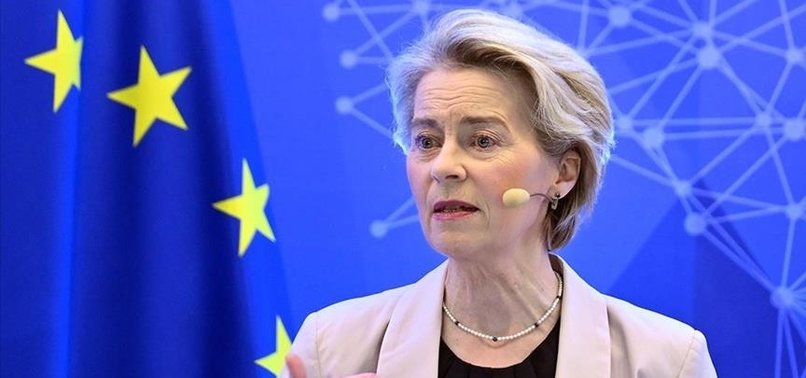
By Adeyemi Adekunle
The transatlantic alliance faces a significant strain as the European Union (EU) prepares to implement firm countermeasures in response to the United States’ recent imposition of tariffs on steel and aluminum imports. This development threatens to ignite a trade conflict between two of the world’s largest economic entities.
On February 10, President Donald Trump announced a 25% tariff on all steel and aluminum imports, a policy set to take effect on March 4. The administration justifies this move as a measure to protect domestic industries from global competition, aiming to bolster American steel and aluminum producers by allowing them to increase prices and maintain profitability.
In a swift reaction, European Commission President Ursula von der Leyen expressed profound regret over the U.S. decision. “Tariffs are taxes—bad for business, worse for consumers,” she stated. “Unjustified tariffs on the EU will not go unanswered—they will trigger firm and proportionate countermeasures.”
This is not the first instance of such trade tensions. In 2018, during President Trump’s first term, similar tariffs were imposed, leading the EU to retaliate with duties on emblematic American products, including Harley-Davidson motorcycles, bourbon whiskey, and jeans. These measures were designed to exert pressure on key U.S. industries and political constituencies.
Given this precedent, the EU is likely to consider reinstating these tariffs. Bernd Lange, chair of the European Parliament’s trade committee, emphasized the readiness to respond: “When he starts again now, then we will, of course, immediately reinstate our countermeasures.”
The U.S. tariffs have elicited strong reactions beyond Europe. Canadian Prime Minister Justin Trudeau condemned the move as “unacceptable” and pledged a “firm and clear” response if necessary. South Korea’s acting president, Choi Sang-mok, also voiced concerns, emphasizing the need to protect national interests and reduce uncertainties arising from the tariffs.
The imposition of these tariffs is expected to have far-reaching economic consequences. The EU, being the U.S.’s third-largest source of steel and aluminum, stands to be significantly affected. Analysts warn that such trade barriers could disrupt integrated supply chains, increase production costs, and ultimately lead to higher prices for consumers on both sides of the Atlantic.
In Germany, the EU’s largest economy, Chancellor Olaf Scholz underscored the importance of a united European response. Addressing the Bundestag, he stated, “If the U.S. leaves us no other choice, then the … that “ultimately, trade wars always cost both … .”
Despite the firm stance, EU officials have expressed a preference for resolving the dispute through dialogue. European Commission Vice-President Maroš Šefčovi … labeled the tariffs as “economically counterproductive” and highlighted the deeply integrated nature of transatlantic trade. He emphasized the EU’s commitment to constructive dialogue, stating, “We remain committed to constructive dialogue”.
As the March 4 implementation date approaches, diplomatic efforts are expected to intensify. President von der Leyen is scheduled to meet U.S. Vice President JD Vance in Paris to discuss the issue, aiming to find a resolution that averts a full-blown trade war. The outcome of these discussions will be pivotal in determining the future trajectory of EU-U.S. economic relations.
In the meantime, businesses and consumers on both sides of the Atlantic brace for potential disruptions. The situation underscores the delicate balance in international trade relations and the cascading effects that policy decisions can have on the global economy.




